When digital music started taking over the world, Sandy Chase stuck to his guns.
The introduction of the compact disc in the mid-1980s led the music industry away from the turntable and its time-tested technology — but Sandy always refused to stock anything but vinyl at his store, The Record Collector, across the street from Fairfax High School.
“We are the oldest record establishment in L.A.,” Sandy said. “We’re the only one in the world that did not endorse digital formats. We refused to sell CDs; we wouldn’t take that money.”
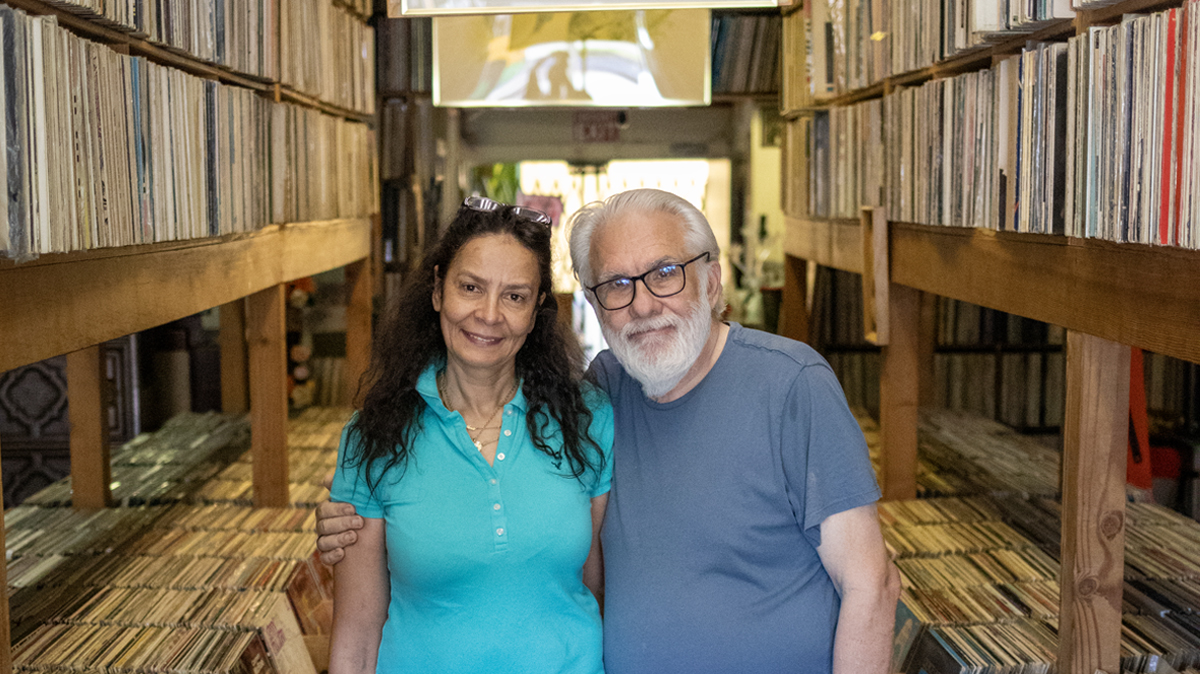
Today, Sandy is feeling very validated. For the first time in 39 years, vinyl records are outselling CDs.
“Older people who got rid of their collections want them back, and younger people want them because they realize records sound better,” he said. “The harmonic information is infinite; when you turn it into a digital representation, you destroy it.”
The rich jazz piano of Oscar Peterson fills the store on a recent afternoon.
“I saw him play at the Geffen Playhouse in Westwood a number of years ago,” Sandy recalls. “Musicians back then had a say in whether or not their recording was issued. If it didn’t sound right, they wouldn’t allow it to be issued. Right now, musicians have given all that away. They got sucked into the technology, and their rights as artists were eroded, as was the quality of musicianship.”
“I feel that we lost our culture because we’ve had several generations now who didn’t grow up knowing recorded history in the proper format,” Sandy said. “But the future is rosy, thanks to our existence and our preservation efforts. You can actually go back in time and feel the vibe.”
At 22 years old, Sandy was a professional violinist who wanted to expand his record collection, which numbered 10,000 at that point. He opened The Record Collector’s original location on Highland Ave. in 1974.
Around half a million records are housed in The Record Collector’s current building, which was the very first built on this stretch of Melrose Ave. in the early 1920s. A photograph on the wall shows the lone building surrounded by model Ts across the street from the just-finished high school. It was originally a pastry shop, then later a recording studio. The former recording booth is where Sandy and his wife keep their office.
The Record Collector may be located in one of the hippest spots in town, but it wasn’t always that way.
“When I bought this building in ’99, my clientele — one guy said, ‘What are you moving there for? It’s so quiet and dowdy.’ And I said, ‘I like quiet and dowdy; it gave me an opportunity to, you know, do my thing.’ So, when they finally defined this as the arts district— I feel we had something to do with it because there’s nothing of significance outside of us. We’re this internationally known record emporium, you know, and now we’re on Melrose. So, I think we redefined it to a great extent.”
“It is a perfect location now, but it didn’t start off that way. We made it into a perfect location. When we bought this building, we paid $500,000 for it, and now it’s worth much more. I couldn’t even imagine. This is the center of what’s happening.”
Despite Sandy’s acclaim in classical music circles — he’s been written about in “Gramophone” magazine, and a Chinese film crew recently interviewed him for a two-hour documentary — The Record Collector often goes overlooked among locals, even the music-obsessed teenagers from the high school.
“Their parents are not into the arts,” Sandy believes. “Parents are not nurturing their children’s tastes because the children don’t have a musical environment. They don’t have orchestra classes and music classes like they used to when I was growing up in public school. They’ve been abandoned in that regard.”
But he’s seen signs of change just in the past six months.
“The people who live around here have come in and become customers. Almost every person says, ‘I don’t know why I haven’t been in here. I’ve walked by this place or driven by hundreds or thousands of times, and I just ignored it.’ But the thing is, people want to do what’s fashionable. Especially now, with records becoming popular, I’m getting the neighbors to finally become customers.”
What does the future hold for The Record Collector?
“If we can get young professionals to build record collections, that’s our goal. Building a record collection is a fun process. I read an article a few months ago that said there are more people with records than people with record players. That’s sad. So, start building your record collection first. It’s a lifetime commitment.
His advice for new business owners on Melrose?
“First of all, they should be well-capitalized. They should be open every day. They should have something worth having. You know, another Vegan restaurant? I don’t think so.”
“I don’t do it for the money,” Sandy said. “I do it out of love and the necessity of preserving our culture and the historic past. I grew up in a musical household and knew many great musicians personally. I’ve learned a great deal and have many stories to share.”
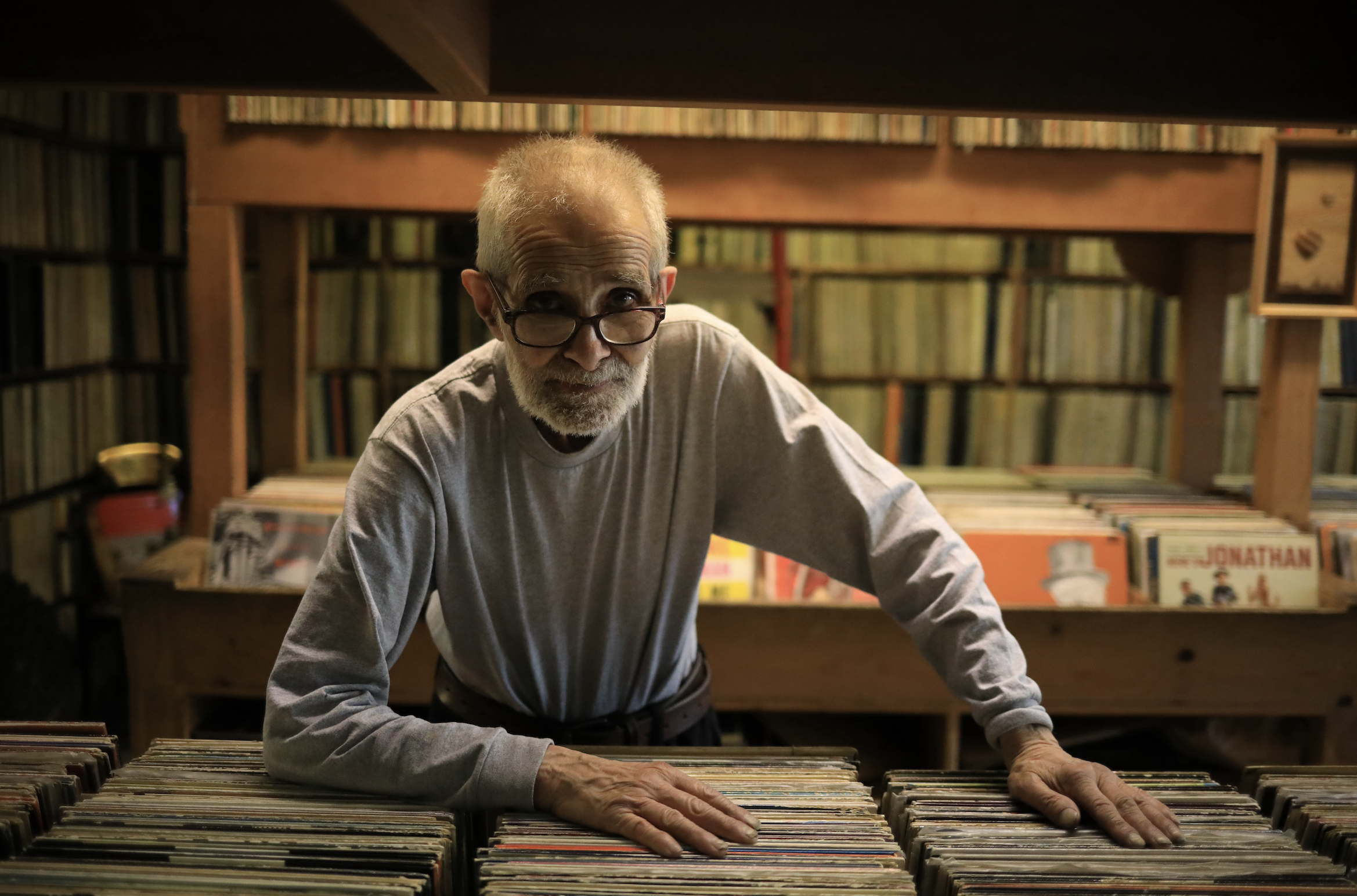

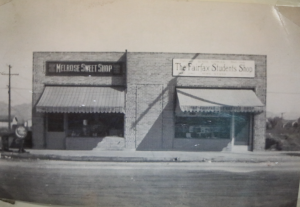
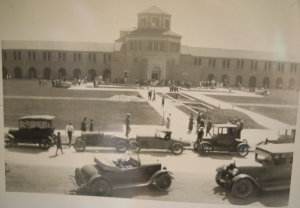
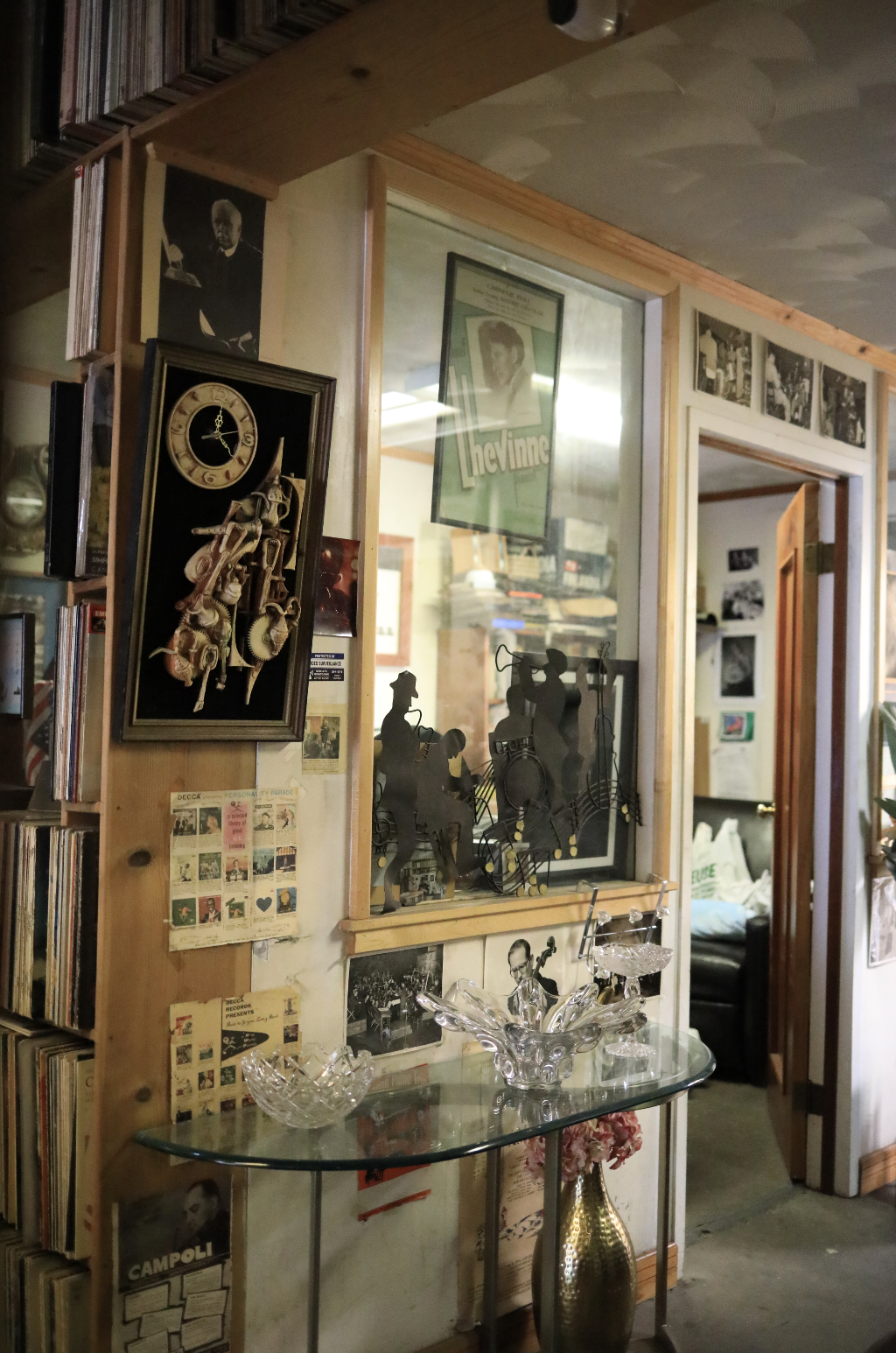
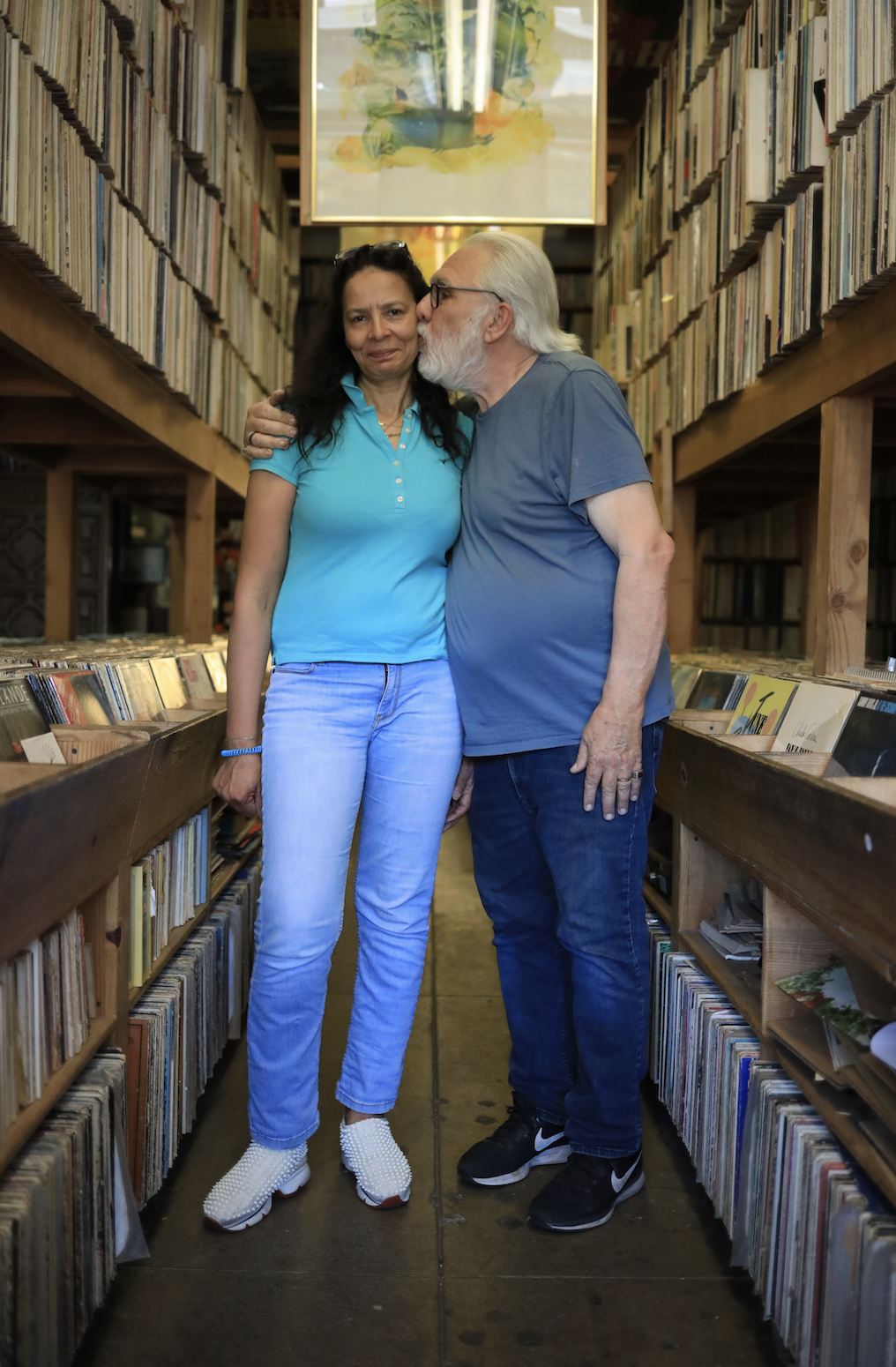
Lovell’s in Whittier has been around since 1951.
Actually since 1946!
God bless Sandy Chase (and Henry) for sticking to his guns; for love and dedication to the music and the SOUND, not commerce and a quick buck. That the wonderland that is the Record Collector is still here is a testament to soulfulness and credence and tenacity. And Sandy is right, vinyl just sounds better.